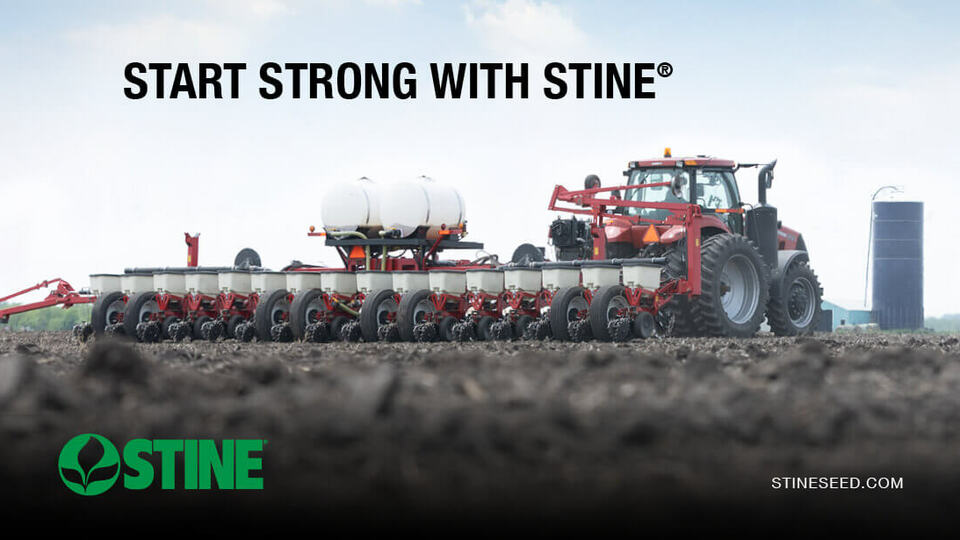No-till farming can be beneficial for a field when used in combination with the right seed genetics. The residue left behind from previous years’ crops substantially decreases soil erosion and reduces the risk of runoff. No-till helps the soil retain nutrients and water, which contributes to the success of Stine soybean varieties and corn hybrids. This combination allows growers to potentially advance yields for their return on investment while promoting sustainability on the farm.
Stine offers a variety of products to fit growers' no-till strategy. I recommend a few Stine varieties and hybrids that I use on my own no-till fields — Stine®31LE32 and 36LE32 brand soybeans and Stine®9529E-20 and 9734-20 brand corn.
Stine 31LE32 and 36LE32 brand soybeans were two of Stine’s best-selling LibertyLink® soybeans in 2017. Both products have strong emergence with excellent standability. Stine 31LE32 brand soybeans feature a taller-than-average plant and are resistant to Rps1c Phytophthora root rot, brown stem rot, stem canker and SCN. The variety also has very good tolerance to charcoal rot. Stine 36LE32 brand soybeans are a sister to Stine® 38LF22 brand soybeans. They are resistant to Rps1c Phytophthora root rot, SCN, brown stem rot and stem canker. This variety also has an excellent disease package, which offers protection against sudden death syndrome, root knot nematode and charcoal rot.
Both Stine 9529E-20 and 9734-20 brand corn have dual modes-of-action for above ground insect protection in addition to excellent roots and stalks. Both hybrids have good stress tolerance and are glyphosate and glufosinate tolerant. Stine 9734-20 brand corn has leaf disease protection, is an excellent full-season option with northern movement and is a top performer in all soil types and row configurations. Stine 9529E-20 has tolerance to northern corn leaf blight, is a great full-season option and is an early pollinator, which translates to a longer grain-fill period.
To learn more about which Stine varieties and hybrids are suitable for your operation, including in no-till situations, contact your local Stine sales rep.
Related Articles
-

Leveraging drone technology for improved research
February 2026 in Agronomy
-

MX Series Corn by Stine®: Proven performance for 2026
January 2026 in Agronomy
-

Start strong with Stine®: Maximizing your 2026 potential
January 2026 in Agronomy
-

Stine® to offer Syngenta’s Victrato® soybean seed treatment in 2026
December 2025 in Agronomy



